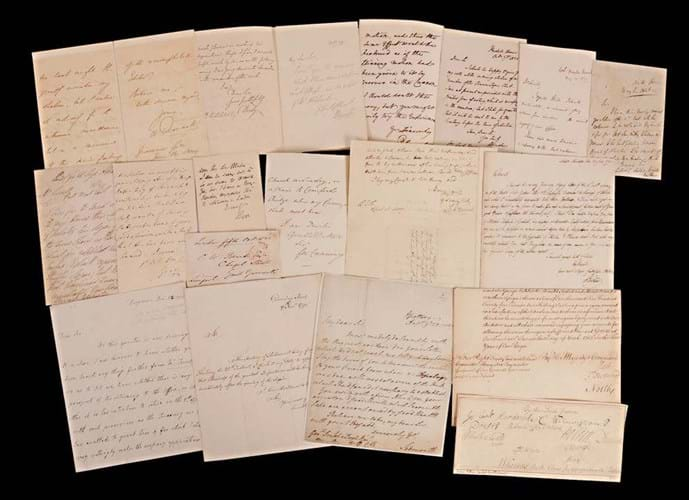The assemblage of documents, letters, clipped signatures and photographs had been formed by a private UK collector who purchased them either at auction or from dealers.
Offered at Chiswick Auctions (25% buyer’s premium) from February 2-18, the estimate had been £9000-12,000 but it got away at the reserve.
Notwithstanding the four days in 1757 when Earl Waldegrave attempted to govern or the two-day administration of the Earl of Bath in 1746, there have been 57 British PMs.
The collection began with Robert Walpole (a Treasury document instructing the payment of £223) and ended with a glossy signed photograph of Rishi Sunak. It included letters, notes and missives from names such as Robert Peel, Benjamin Disraeli and Winston Churchill that echo down the ages.
Short termers
However, the real challenge for collectors in the field is to track down the autographs of more obscure figures. Eight of the 57 PMs served less than a year in the post.
While Liz Truss holds the unwanted record for the shortest unequivocal term of office, at 49 days, she is in the company of George Canning, who served for 119 days before dying in office on August 8, 1827, and his successor Frederick John Robinson, The Viscount Goderich, who managed 144 days before resigning in January 1828.
Canning is represented by a letter arranging a carriage ride of July 5, 1825, and Goderich by a brief note declining an invitation.
Most of the documents are of a relatively mundane nature. However, some are more substantive.
In a three-page letter from 10 Downing Street dated November 23, 1921, David Lloyd George writes to the Conservative party MP Howard Gritten regarding an initiative to address unemployment.
“This argument would be quite sound if the scheme could be confined to the case you have in mind. The whole difficulty, however, is that the scheme I fear, could not be so confined.
“Similar treatment would be at once claimed by all the other firms in the iron and steel industry…In a short time the Government would be in danger of finding themselves subsidising a great part of the industries of the country.”















